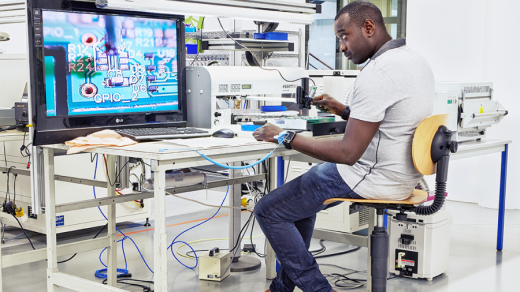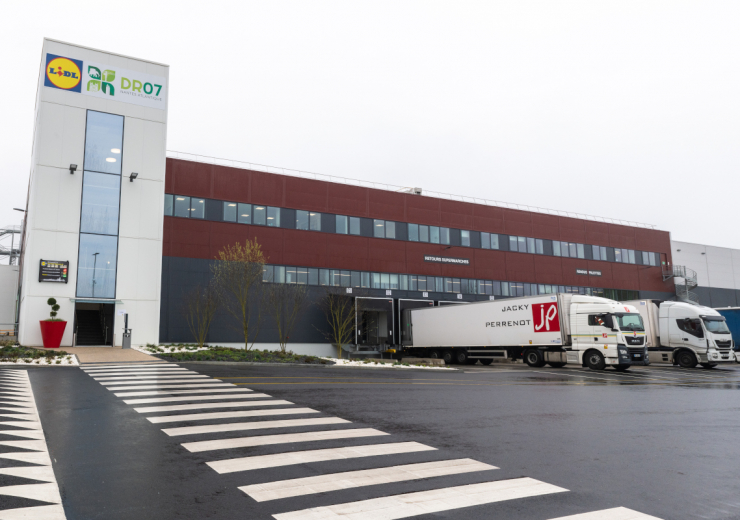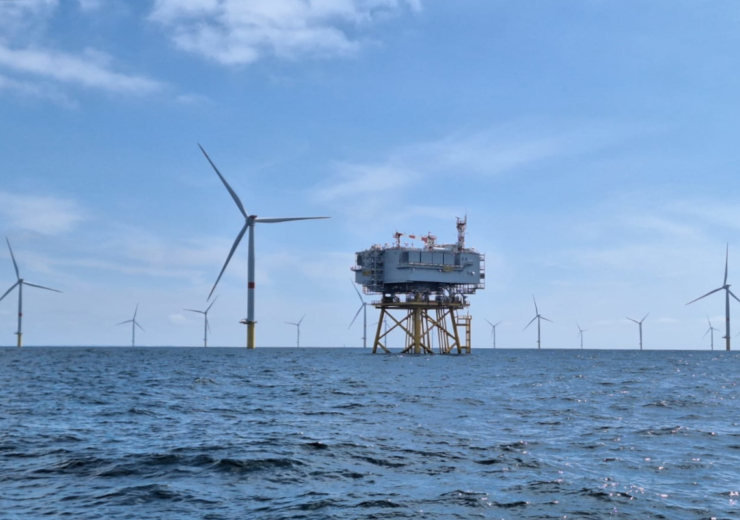Inaugurated in December 2019, the Technocampus Electronics & IoT is a unique site in France. Based in the urban area of Angers, at the heart of the historic base of the electronics industry, this hub is positioned as an accelerator for the industry’s digital transformation. With this new asset, the Atlantic France region is demonstrating its ambition: to assert itself as a leading territory in this booming market.
Accelerate the digital transformation of SMEs
Located in Verrières-en-Anjou, in the urban area of Angers, the Technocampus Electronics & IoT is run by We Network, which is the technical centre of the French electronics industry and brings together 200 members – including the principal French electronics subcontractors: Eolane, Lacroix Group, ALL Circuits and Tronico.
The objectives of this Technocampus? To accelerate the digital transformation of the electronics sector and that of the industry as a whole, through the development of connected products and factories. This place of convergence for all industrial and academic players has replaced, since December 10, 2019, the former City of Connected Objects.
An offer of support and resources to create smarter connected services
With more than 40,000 direct and indirect jobs, the positioning of the electronics sector is strategic for the Atlantic France region and its transformation towards industry 4.0 is an essential lever for the digital transformation of the entire economy of Atlantic France. Thanks to the Technocampus Electronics & IoT, startups or manufacturers can find support and resources in the same place to engage in innovation and create – with the IoT – smarter connected services.
- Industrial studies: The Technocampus Electronics & IoT provides its expertise and state-of-the-art equipment for testing, prototyping or manufacturing in small series.
- R&D: The Technocampus Electronics & IoT is a gateway to school resources and regional research labs in the field of electronics.
- Professional training: The Technocampus Electronics & IoT is a place for raising awareness and training teams in digital transformation technologies; each training course is adapted to the specific needs of the companies.
- Animation: Technical platforms, coworking spaces, a conference room, setting up events… We Network brings this place to life and animates the community.
Thanks to shared equipment, companies can design and test new products. They can carry out their R&D projects such as Proofs of Concepts (PoCs) by mobilising laser cutting or 3D printing resources. A CAD space (Computer Aided Design) and an electronic board prototyping line are also available to tenants of the site.
Sebastien Rospide, Managing Director of We Network
The Electronic & IoT Technocampus is unique in France. Several projects have already been completed at this site, demonstrating that, in France, it is possible to control and preserve the entire industrialisation of a connected object, as illustrated by the very first connected shoe from the ERAM group.
To date, 7 tenants and around 50 people work at this site daily, including the company Qowiso and the French National Society of Connected Objects. We Network, the technological facilitator of this Technocampus, is also based on these premises.
Spaces available to welcome new players
Whether you are a start-up, an industrialist, a design office, a specialist in connected solutions or a company in the electronics sector… There is still more than 4,000 sqm of space for rent, which has been made available to players in the sector wishing to benefit from an unequaled working environment, in order to develop new products or accelerate their development.
I am interested!
The Technocampus network in Atlantic France
There are now seven Technocampuses in Atlantic France. These technological platforms were created by the regional council and are run by Solutions&co. Their objective is to involve the companies from a sector of excellence towards the industry of the future.
They bring together – in the same place – industries (large groups, medium-sized companies or SMEs), private and public research groups (universities or laboratories) and innovation support structures (competitiveness clusters or technological resource centres).


 日本語
日本語  Français
Français 



